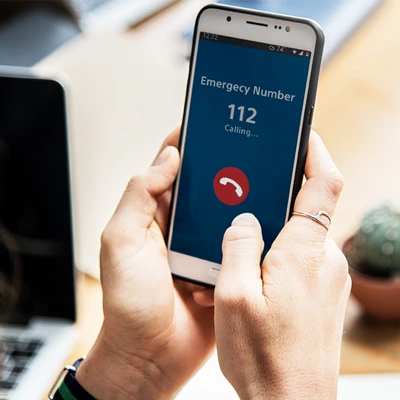
Ensure More Life in Every Heartbeat
Be better informed about how to beat heart disease
What You Need to Know
A heart attack is a life-threatening condition that requires immediate medical attention. It happens when the blood flow to the heart is blocked, causing damage to the heart muscle. If you are experiencing heart attack symptoms, it is important to seek medical help immediately. Here you will get essential information related to medical assistance that can be obtained for a heart attack.
Medical Services
When you call 112, emergency medical services (EMS) will be dispatched to your location. EMS professionals are trained to provide immediate medical Help for heart attacks. They can administer medications, provide oxygen, and perform CPR if necessary. EMS can also transport you to the hospital quickly, making a big difference in your recovery.
Hospital Care
Once you arrive at the hospital, you will be evaluated by a medical team. They will perform tests to determine if you have a heart attack and what type of treatment. If you have a heart attack, you’ll likely be admitted to the hospital and treated with medications and procedures to restore blood flow to the heart.
Cardiac Rehabilitation
After you have received medical help related to a heart attack, your doctor may recommend cardiac rehabilitation. This program helps you recover from a heart attack and reduce your risk of future heart problems. Cardiac rehabilitation typically involves exercise, education, and counseling to help you make lifestyle changes that can improve your heart health.
If you are experiencing heart attack symptoms, seek medical help immediately. Time is essential when treating a heart attack, and the quicker you receive medical help, the better your chances of a full recovery. Emergency medical services, hospital care, cardiac rehabilitation, and medications are all important components of medical help for heart attacks. If you have concerns about your heart health, talk to your doctor about reducing your risk of heart disease.
Frequently Asked Questions
What treatments are available for a heart attack?
The primary treatment for a heart attack is to restore blood flow to the heart muscle. It can be done with medications or procedures such as angioplasty or coronary artery bypass surgery.
How long does it take to recover from a heart attack?
Recovery time can vary depending on the severity of the heart attack and the individual’s overall health. It may take several weeks or even months to recover fully.
Can a heart attack be prevented?
Several lifestyle changes can help reduce the risk of a heart attack, including eating a healthy diet, exercising regularly, quitting smoking, and managing conditions such as high blood pressure and diabetes. Additionally, some individuals may benefit from medications such as aspirin or cholesterol-lowering drugs.
What should I do if I think I have a heart attack?
If you are experiencing heart attack symptoms, call 108 immediately. Do not try to drive yourself to the hospital.
Subscribe to Platinum For Heart Newsletter
Sign up now and get free access to our monthly newsletter on Heart health & More
Disclaimer: The information presented by Boston Scientific Corporation is for educational purposes only and does not recommend self-management of health issues. The information should not be treated as comprehensive and does not intend to provide diagnosis, treatment or any medical advice. Individual results may vary and hence, it is advisable to consult your doctor regarding any medical or health related diagnosis or treatment options.
IC-1566402AA-0423

